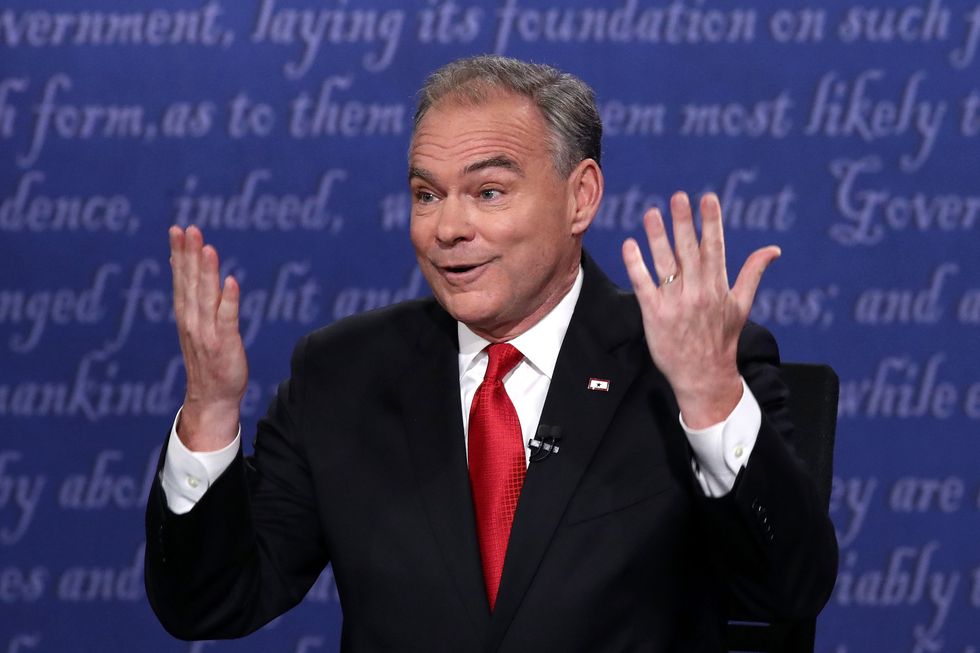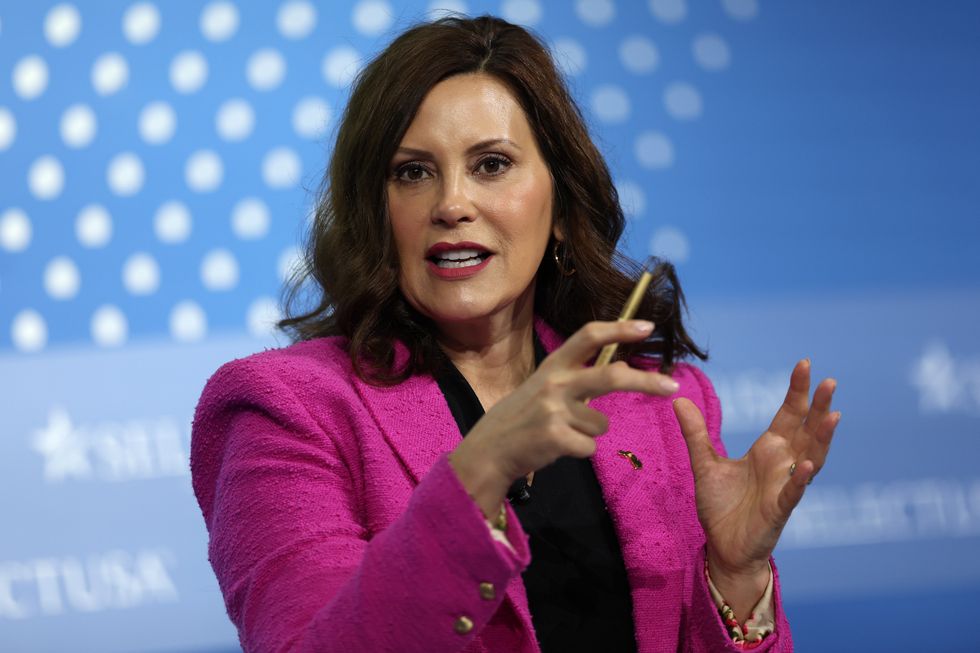What history says about V.P. picks: senator, governor or wild card?

We know this much: Vice President Kamala Harris will pick her running mate before accepting her party’s presidential nomination in August at the Democratic National Convention.
Harris also has a short list of about a dozen potential candidates she’s vetting, according to CBS News.
So should she choose a U.S. senator, governor, U.S. House representative — or someone else?
Let’s examine the historical record to see which type of vice presidential candidates have helped — or hurt — a presidential ticket.
Since 1945, presidential candidates have made 31 vice presidential picks — not counting vice presidential renominations.
ALSO READ: How much access did $50,000 buy someone at the Republican National Convention?
Of these 31 picks, 19 most recently served in elected office as U.S. senators, four were governors and seven had prior electoral experience only from the House of Representatives, such as Dick Cheney and George H. W. Bush. One did not have experience in any of those offices.
Of their 18 vice presidential selections, Democrats have chosen a U.S. senator in 16 cases since 1945. The Republicans are a little more diverse in their selections, with four U.S. Senate picks — including Donald Trump’s selection of J. D. Vance — four gubernatorial picks and six selections from the House of Representatives.
 Republican vice presidential nominee U.S. Sen. J.D. Vance (R-OH) speaks at the first public rally with his running mate, former U.S. President Donald Trump (not pictured), at the Van Andel Arena on July 20, 2024 in Grand Rapids, Mich. (Photo by Bill Pugliano/Getty Images)
Republican vice presidential nominee U.S. Sen. J.D. Vance (R-OH) speaks at the first public rally with his running mate, former U.S. President Donald Trump (not pictured), at the Van Andel Arena on July 20, 2024 in Grand Rapids, Mich. (Photo by Bill Pugliano/Getty Images)
There’s the adage that a vice president can only hurt you, and he or she can’t help you. Gov. Nelson Rockefeller, who Gerald Ford selected when he replaced President Richard Nixon as president, was not renominated by Ford when he unsuccessfully ran for his own term in 1976 — not that it mattered much in the end.
Historical evidence indicates that the prior job of the running mate makes little difference in victory or defeat — if he or she is a senator or governor. U.S. senators nominated for vice president have won nine times and lost eight times. Governors as vice presidential nominees are split, winning twice and losing twice.
But those without gubernatorial or senatorial experience fare poorly. Picking a candidate from the House of Representatives has only been successful two times in seven tries.
EXCLUSIVE: Trump ‘secretary of retribution’ won't discuss his ‘target list’ at RNC
The one candidate without experience as a governor, senator or representative, Sargent Shriver, lost in 1972 as Democrat George McGovern’s ticket partner.
Republicans picked Vance, and their record with U.S. Senate vice presidential nominees is pretty good: two wins (Richard Nixon and Dan Quayle) and one loss (Bob Dole).
Democrats, however, have seven wins with U.S. senators (Kamala Harris, Joe Biden, Al Gore, Walter Mondale, Hubert Humphrey, Lyndon B. Johnson, and Alben Barkley) against seven losses (Tim Kaine, John Edwards, Joe Lieberman, Lloyd Bentsen, Edwin Muskie, Estes Kefauver and John Sparkman).
 Then-Democratic vice presidential nominee Tim Kaine speaks during the vice presidential debate with Republican vice presidential nominee Mike Pence at Longwood University on October 4, 2016 in Farmville, Va. (Photo by Win McNamee/Getty Images)
Then-Democratic vice presidential nominee Tim Kaine speaks during the vice presidential debate with Republican vice presidential nominee Mike Pence at Longwood University on October 4, 2016 in Farmville, Va. (Photo by Win McNamee/Getty Images)
Republicans are the only ones since World War II who have picked a governor as a running mate. Two (Mike Pence, Spiro Agnew) won, while two (Sarah Palin and Earl Warren) lost.
U.S. House representatives have largely failed for both parties, with the GOP picking two winners (George H. W. Bush and Dick Cheney) and four losers (Paul Ryan, Jack Kemp, Henry Cabot Lodge Jr., and Bill Miller). Democrats picked one (Geraldine Ferraro) and she lost.
It should also be noted that Bush — UN ambassador, CIA director — and Cheney — secretary of defense, CEO of Halliburton — both had extensive experience in other realms between their stints as House members and selections as vice presidential candidates.
Trump has already made his pick. What should Harris do?
It’s a flip of a coin based on the historical record, so long as she doesn’t pick a U.S. House member.
At present, senators and governors top her shortlist, including Harris can choose North Carolina Gov. Roy Cooper, Kentucky Gov. Andy Beshear, Sen. Mark Kelly of Arizona, Michigan Gov. Gretchen Whitmer, Pennsylvania Gov. Josh Shapiro, Illinois Gov. J. B. Pritzker, Maryland Gov. Wes Moore, California Gov. Gavin Newsom or even Minnesota Gov. Tim Walz. Some new names include Commerce Secretary Gina Raimondo and Transportation Secretary Pete Buttigieg, as CBS reports.
 Michigan Gov. Gretchen Whitmer (D-MI) is reportedly on the list of vice presidential candidates that presumptive 2024 Democratic presidential nominee Kamala Harris is vetting. Whitmer, however, has indicated she's not interested in the job and "not leaving Michigan." (Photo by Kevin Dietsch/Getty Images)
Michigan Gov. Gretchen Whitmer (D-MI) is reportedly on the list of vice presidential candidates that presumptive 2024 Democratic presidential nominee Kamala Harris is vetting. Whitmer, however, has indicated she's not interested in the job and "not leaving Michigan." (Photo by Kevin Dietsch/Getty Images)
Given that the record shows all things are equal in vice presidential picks, it is probably best to select a running mate from a state that will help you. That would put those candidates from swing states, such as Kelly (Arizona), Shapiro (Pennsylvania), Whitmer (Michigan) and even perhaps Cooper (North Carolina), at the top of the list.
Had Gore picked popular Florida U.S. senator and former Gov. Bob Graham for his VP, he would have very likely won the 2000 election, given Florida’s overriding significance in that race. Taking a running mate from Connecticut in 2000 — Joe Lieberman — made little difference.
Ford might have done better in 1976 with a Texan such as George H. W. Bush instead of a Kansan in Dole, given that Ford lost the Lone Star State to Democrat Jimmy Carter.
For John McCain in 2008, Pennsylvania Gov. Tom Ridge would have been a far better choice than Palin, of then-deep red Alaska. McCain lost the Keystone State (and some Obama-backing moderates).
In a close presidential race, particularly now, vice presidential candidates from swing states may matter more, regardless of prior office experience.
John A. Tures is a professor of political science at LaGrange College in LaGrange, Georgia. His views are his own. He can be reached at jtures@lagrange.edu. His “X” account is JohnTures2.
